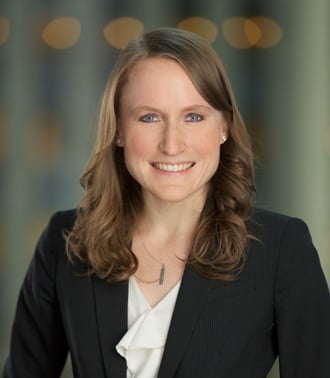Supreme Court Decision on Judicial Campaign Rule Adopts Positions From Our Pro Bono Amicus Brief
Client Says Decision Is One of the Biggest Victories
for Protecting Judicial Integrity
Kaye Scholer, in conjunction with the Brennan Center for Justice at NYU School of Law, submitted an amicus brief on behalf of several pro bono clients, including the Brennan Center, urging the US Supreme Court to uphold a Florida judicial canon prohibiting candidates for judicial office from personally soliciting campaign contributions. On April 29, in a 5-4 decision that The New York Times editorial board called “surprising,” the Court decided in Williams-Yulee v. Florida Bar to uphold the ban.
A clear majority of states, including Florida, elect some or all of their state judges. Various provisions in the judicial codes of these states that regulate judicial campaigns have come under increasing First Amendment attack. Williams-Yulee involved the constitutionality of a provision in the Florida judicial code, prevalent in other states, that prohibits candidates for judicial office from personally soliciting campaign contributions. The case arose after the Florida Bar fined and censured a judicial candidate for sending a letter to potential supporters announcing her candidacy and asking for campaign contributions. She challenged her fine and censure on the ground that the judicial canon violated the First Amendment.
Our amicus brief urged the Court to distinguish between candidates for judicial office and candidates for political offices in considering whether Florida’s canon promoted a compelling state interest. While candidates for political office are expected to be partial to their campaign contributors, the judicial system is predicated on the public’s confidence that judges act impartially without regard to the concerns of their campaign contributors. Among other things, we provided the Court with polling and other data to emphasize how Florida’s prohibition on personal solicitation by judicial candidates served to promote its compelling interest in preserving the public’s confidence in judicial impartiality.
Many Court watchers thought it would be necessary to win Justice Kennedy’s vote in order for our side to prevail. But it was Chief Justice Roberts who sided, atypically, with Justices Ginsburg, Breyer, Sotomayor, and Kagan, and assigned the majority opinion to himself. Even though finding the Florida ban had to pass muster under the Court’s demanding “strict scrutiny” standard, Chief Justice Roberts found that this was one of those “rare cases” where a state restriction on speech is “narrowly tailored” to meet a compelling state interest.
In so holding, the Chief Justice adopted many of the positions that our amicus brief advocated, and even cited to one of our Brennan Center colleague’s publications about judicial campaign financing. Indeed, on the very first page of his majority opinion, Chief Justice Roberts wrote: “Judges are not politicians, even when they come to the bench by way of the ballot. And a State’s decision to elect its judiciary does not compel it to treat judicial candidates like campaigners for political office. A state may assure its people that judges apply the law without fear or favor—and without having personally asked anyone for money.” In a concurring opinion, Justice Ginsburg also cited to some of our client’s polling data presented in our brief.
Complex Commercial Litigation Special Counsel Randy Sherman, Counsel Robert Grass and Associate Stephanna Szotkowski collaborated on the amicus brief with a team at the Brennan Center. In writing to another lawyer about the decision, Matt Menendez of the Brennan Center remarked, “we are incredibly pleased with this. Randy’s team and mine worked incredibly hard on that case, and it’s one of the biggest victories we’ve had for protecting the integrity of the judiciary.”


